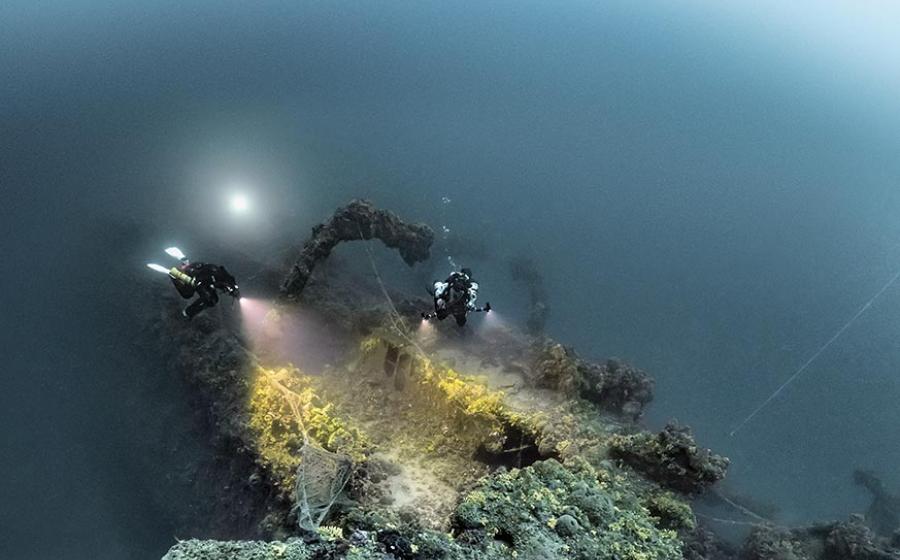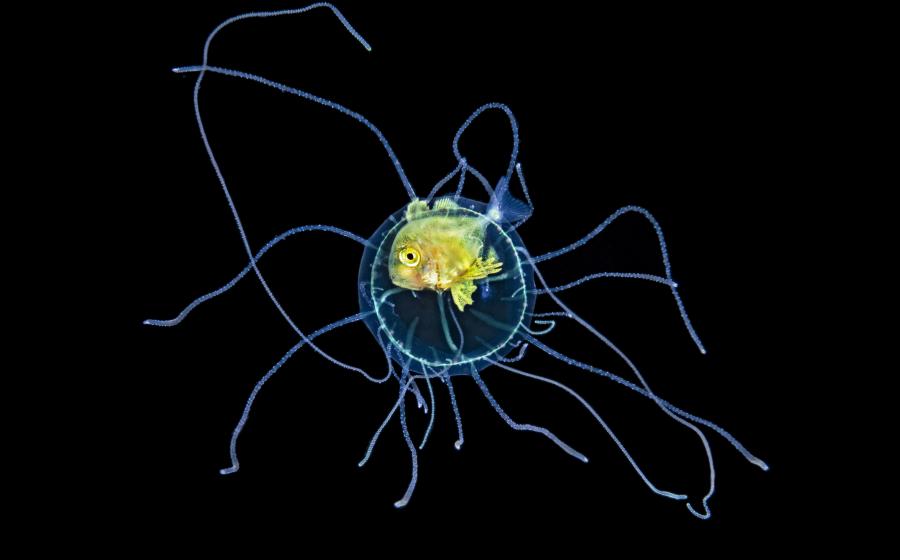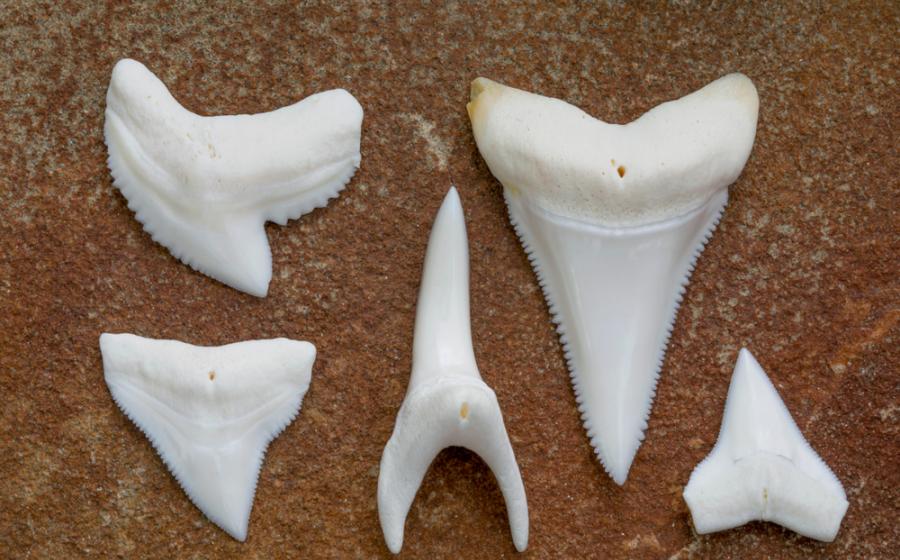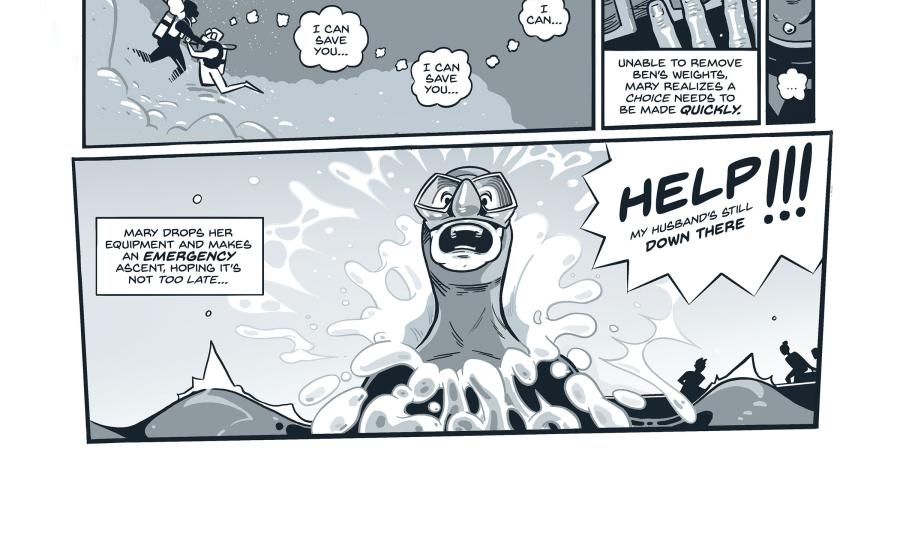Truk Lagoon: From War Zone to Scuba Diving Paradise
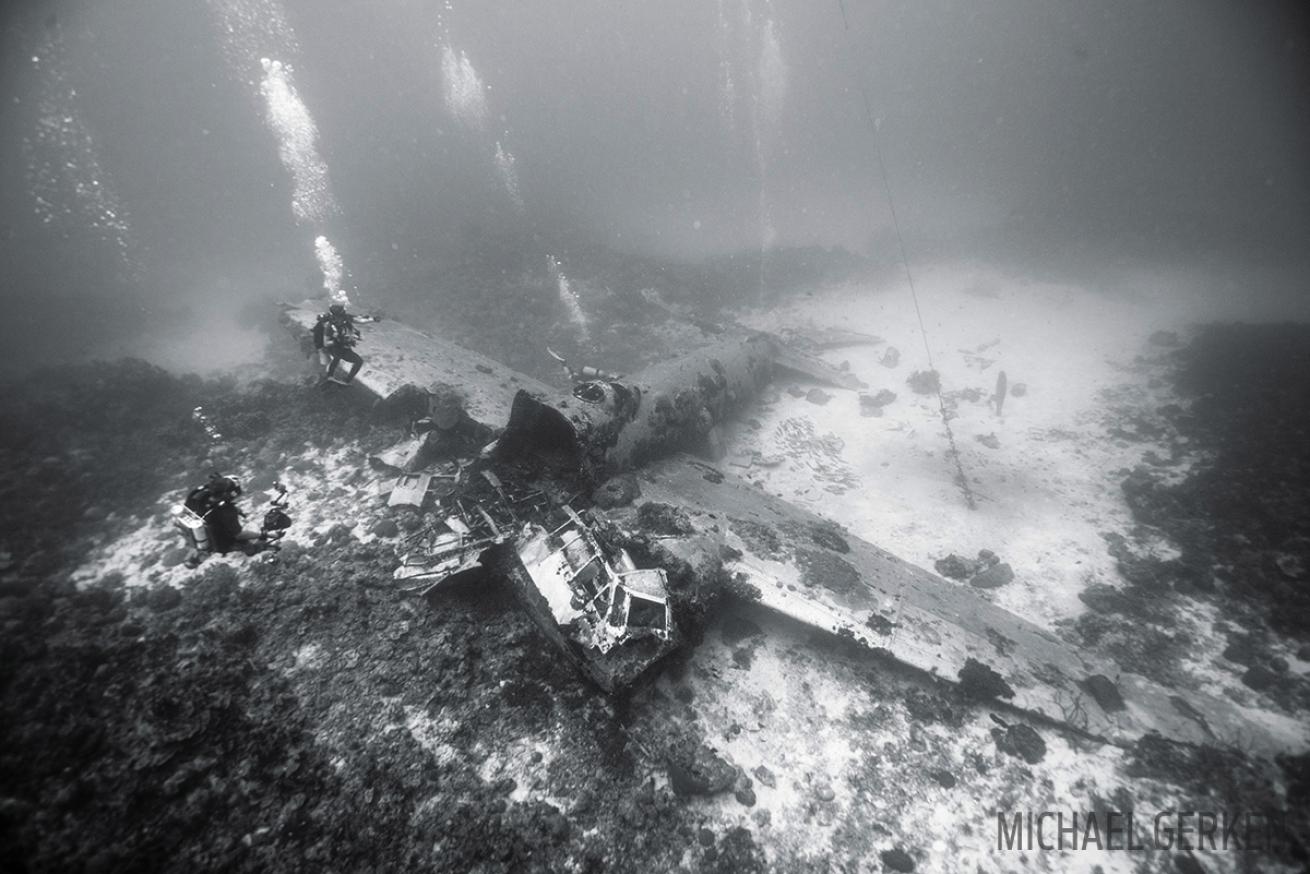
Mike GerkenThe WWII Mitsubishi “Betty” bomber rests at 65 feet in Truk Lagoon, and is now filled with tiny baitfish.
In just two days in February 1944, more than 500 planes launched from U.S. aircraft carriers sank nearly 50 Japanese ships in Micronesia’s Truk Lagoon, many of them sitting helplessly at anchor.
No one could have predicted it then, but horrific Operation Hailstone would give rise to a wreck-diving paradise, a single location with more than 50 wreck sites steeped in history and rich in marine life.
Scuba Diving in Truk Lagoon
Known today as Chuuk, in the Federated States of Micronesia, Truk Lagoon is a large atoll that stretches nearly 150 miles in circumference, encircling dozens of small islands along with the wrecks. Warm, clear tropical waters within the sheltering reef create an ideal dive location. Many of the wrecks are intact, multilevel dives — whether you prefer shallow sections or want to explore deep inside engine rooms, there’s something here for all skill levels, from novice to technical deep diver.
Since it’s illegal to remove artifacts, the wrecks of Truk Lagoon form an underwater museum that is tantalizing to anyone who has even a slight interest in WWII.
Rows of portholes, nautical equipment, munitions, deck guns, and thousands of beer and sake bottles are all here. Yet divers expecting only rusted hulks and historical artifacts will quickly find they have penetrated an underwater Eden. The marine life that now makes these wrecks home will leave most divers in a state of awe. Large, magnificent sea anemones, healthy schools of trevally, inquisitive sharks, giant sea fans and the occasional nudibranch now and again, will captivate marine-life enthusiasts.
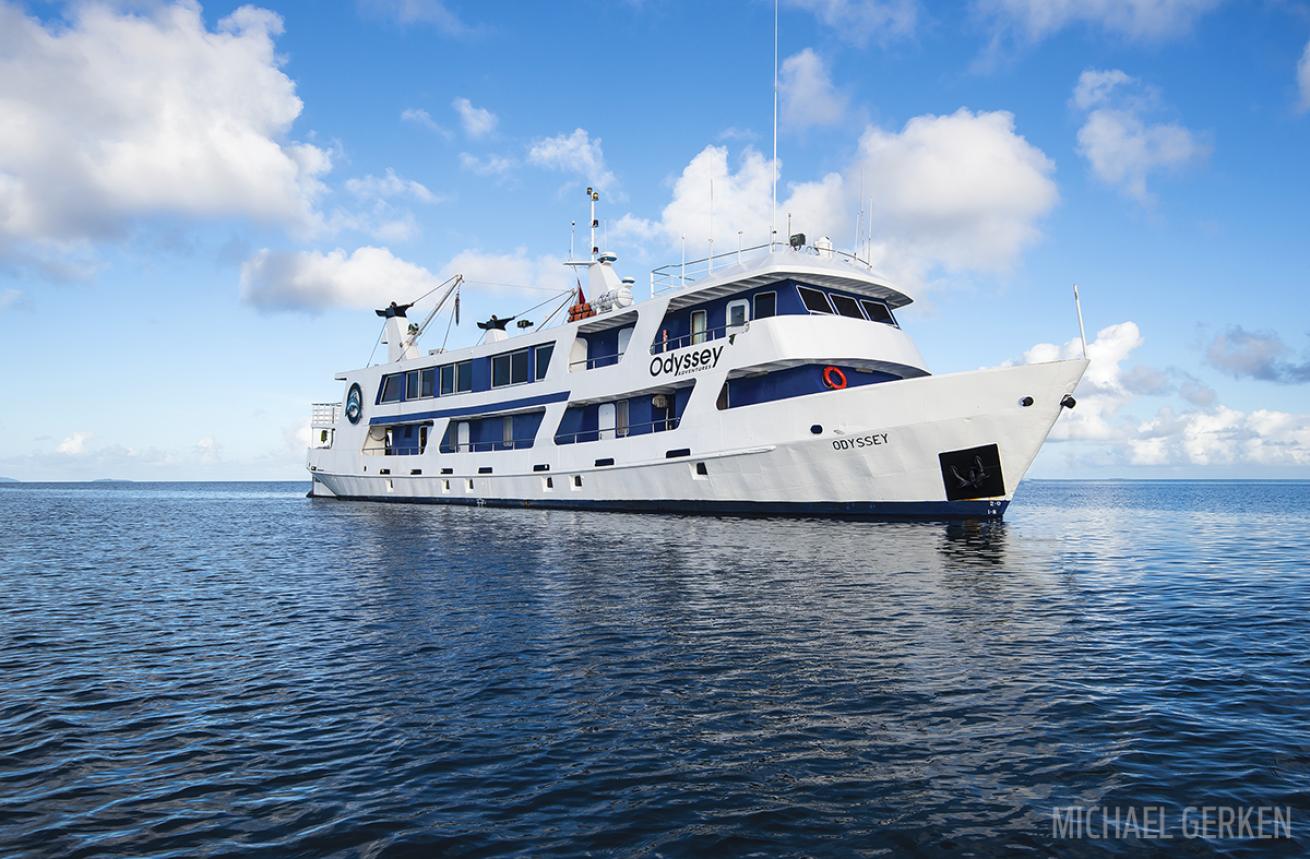
Mike GerkenThe MV Odyssey has been bringing divers to the wrecks of Truk since 1999. The 132-foot luxury liveaboard carries up to 16 passengers in spacious staterooms on seven-day dive excursions to all the top wreck sites.
The MV Odyssey has been bringing divers to the wrecks of Truk since 1999. The 132-foot luxury liveaboard carries up to 16 passengers in spacious staterooms on seven-day dive excursions to all the top wreck sites. Premier dives such as the Fujikawa Maru, with Japanese Zeros in its cargo hold, and the stunning, coral-encrusted Shinkoku Maru are on most itineraries. During a typical charter week, Odyssey will visit up to 15 dive sites, with an opportunity to make four dives plus a night dive each day. Technical charters and 10-day trips are available on request.
Excursions begin on Sunday evening when guests arrive at the Chuuk International Airport on the main island of Weno. After a short transfer to the boat, passengers settle down for the evening before setting out the following morning.
Truk Lagoon Scuba Diving Guide
The diving in Truk is centralized inside the lagoon, with no rough crossings required. Commonly, the first stop is only 20 minutes from the home mooring, at the wreck of the Heian Maru.
In its heyday, Heian was a luxury liner, before the Japanese imperial navy requisitioned it for wartime use as a submarine tender, evident from the many periscopes, torpedoes and munitions within its holds.
Later in the week, divers get a chance at Japanese destroyer Fumizuki, as well as the antique trucks and heavy machinery inside of Hoki Maru.
If you’re up for a 160-foot dive, the opportunity to see San Francisco Maru is offered on the last day of most charters. Also known as the Million Dollar Wreck because of the supposed estimated value of its cargo, the San Francisco Maru is fully loaded with bombs, bullets, depth chargers and three Japanese battle tanks propped up on the forward deck. If you don’t want to go to 160, there’s always the Nippo Maru, which has a single battle tank lying neatly on its deck and is within recreational limits.
In addition to ships, there are numerous Japanese aircraft on the bottom of the lagoon. Each charter, Odyssey dives a twin-engine long-range Japanese attack bomber code-named “Betty” by the Allies. The condition of the plane is remarkable considering it crash-landed in water more than 70 years ago. Swim through the fuselage past hundreds of tiny baitfish and get the feel for what it would have been like inside a genuine WWII Betty bomber.
If it weren’t for the wrecks, Truk might have fallen quietly into obscurity at war’s end. Instead, this isolated part of the Pacific is now one of the top wreck-diving destinations in the world. Many find that one trip to Truk isn’t enough and return year after year to explore further the vast remains of these underwater relics from the past.

Mike GerkenAlso known as the Million Dollar Wreck because of the supposed estimated value of its cargo, the San Francisco Maru is fully loaded with bombs, bullets, depth chargers and three Japanese battle tanks propped up on the forward deck.
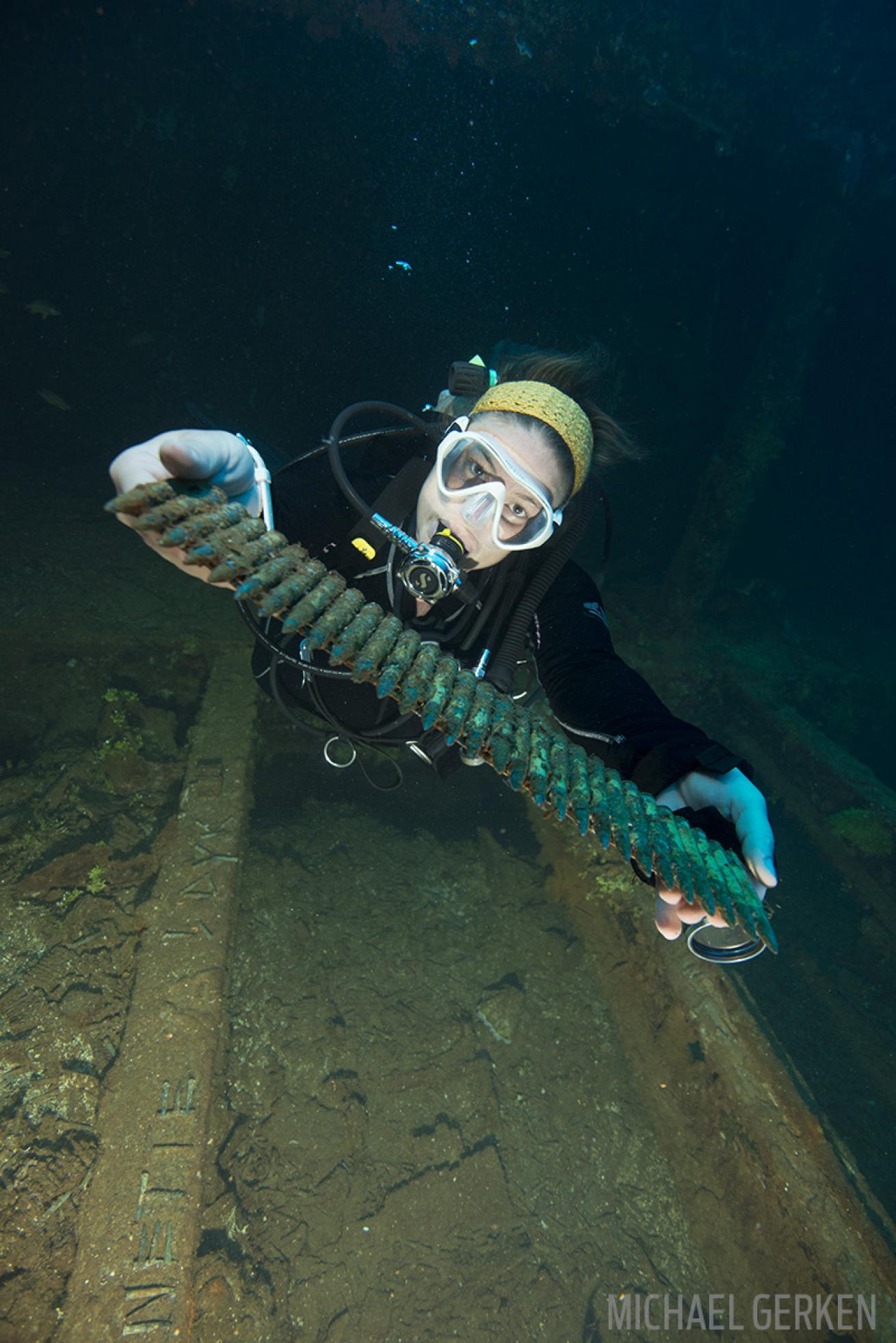
Mike GerkenThe Sankisan is littered with ammo from its previous life.
Travel Info for Truk Lagoon
When To Go: Water temperatures are a balmy 80 to 84 degrees F year-round. Winter yields steady trade winds; summer might produce more rain and variable winds.
Dive Conditions: A rash guard and boardshorts are often the choice for dive wear; a 3 mm wetsuit will do the trick if you prefer. Visibility varies from wreck to wreck, averaging 70 feet but peaking in excess of 100 feet many days. There is little current inside the lagoon.
Operator: Truk Odyssey
Price Tag: $3,195 for a seven-day charter, not including 5 percent tax and a $50 dive permit
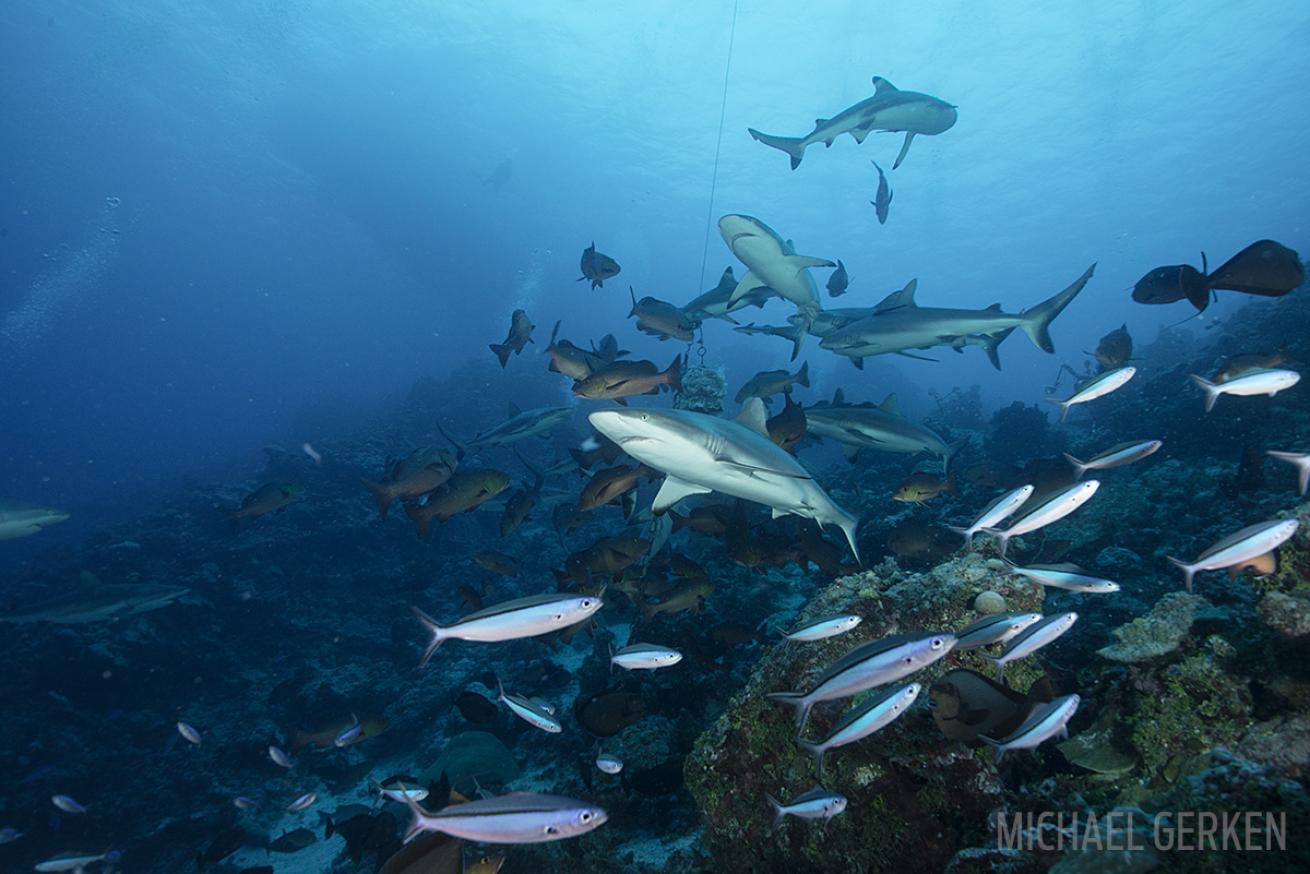
Mike GerkenNot Just Wrecks
"Divers expecting only rusted hulks will quickly find that they have penetrated an underwater Eden."
Five Reasons to Dive from Truk Odyssey
1. On the Spot
Twenty-five of the premier wreck sites have individual moorings adjacent to the wreck, allowing great freedom to come and go as you wish — as long as you are back in time to depart to the next wreck.
2. Spread Out
Staterooms are spacious and luxurious, each with king or twin beds, entertainment system, private bathrooms and individual climate control.
3. Go Native
Odyssey uses experienced local Chuukese dive guides who know every facet of the wrecks inside and out.
4. Tec Savvy
Twin tanks, nitrox, pony tanks, custom oxygen blends and even trimix are all available, as well as CO2 absorbent and bottles for rebreather divers (additional fees might apply).
5. Belly Up
Bring a hearty appetite: Meals and snacks will impress — and keep you charged up for the diving. Soft drinks, beer, wine and spirits are included.







